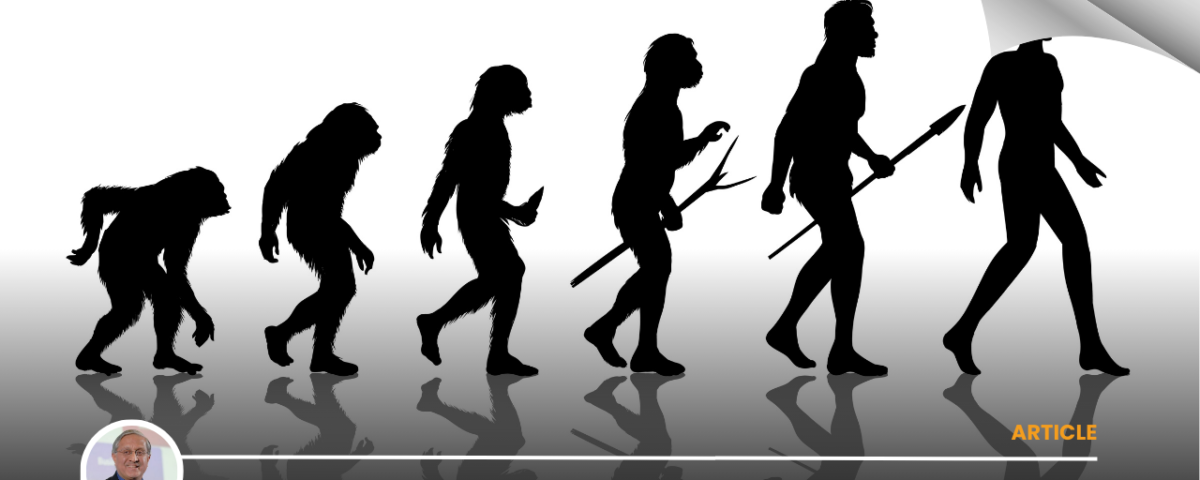BS The Wise Leader (54)
To appear on 15-6-22
Anthropology can help businesspeople
By R. Gopalakrishnan*
(The writer is an author and a business commentator. His articles and videos can be accessed at his website www.themindworks.me and his email ID is rgopal@themindworks.me)
Have you ever wondered whether anthropology could help with solving complex problems in business and public affairs? I am persuaded by a book, Anthro Vision, written by anthropologist and FT journalist Gillian Tett. The cover asserts how anthropology can explain business and life.
Every leader, indeed, every human being, is a victim of the Dunning-Kruger effect—that is, the widespread feeling that we are inherently superior to our peers. Being conscious of its existence helps to promote a modest leadership behavior. Another way is to develop an anthropological mindset.
When you are deeply immersed in solving a problem, you are like a fish in the water. Remember that fish do not notice the water. Board directors could become promoter-fixated or profit-focused rather than purpose-driven or stakeholder-oriented. Companies could get competitor-focused to a fault rather than remain customer-focused. Political parties may get permanently preoccupied with elections or with decimating the opposition. In both cases, it is at the expense of sound public governance and the voter.
Applying the intellectual framework of anthropology could help a person see around corners, gain empathy for others, and derive fresh insights on problems. This approach requires open-mindedness and four habits—observe, listen, record, reflect, all with an open mind. How?
I was unaware that technology companies like Intel and Microsoft engage trained anthropologists to help engineers to see problems from a broader point of view. Engineers need such help because the competent among them act as if all people must think like them. I can confirm this mindset from my own left-brained approaches to problems early in my career as also from my early years as a board director 35 years ago. During my career, I learned how consumer goods companies undertake behavioral studies to build consumer insights into their product design. Nowadays design thinking has become the rage in management education and practice.
In The Alchemist, there is a fable about leading a holistic, rational as well as empathetic approach to life. A trader sent his son to a wise man in a palace to learn happiness. The wise man gave the boy two spoonfuls of oil and requested him to walk around his palace without spilling the oil. Extremely conscientious, the boy returned with the two spoons of oil intact. The wise man complimented him and asked what he thought of the artifacts and marvels in the palace. The boy confessed that he had concentrated so much on the oil that he had not noticed anything else. The wise man directed him to repeat the walk with the spoons, but this time, to also observe the palace. When the boy returned, he was ecstatic about the beauty of the things he had observed in the palace; however, his spoons were empty. The wise man told him that the secret of happiness is to enjoy the marvels of the world without forgetting about the drops of oil on the spoon.
Here is another interesting episode from history. In the early 1900s, Peter Palinsky, a Russian engineer and contemporary of Stalin, played a significant role in applying scientific methods to industry. Stalin had a penchant for dramatic and big announcements—many national leaders have this tendency. Palinsky learned about large projects, but also about small minds. Three of his reflections on how to avert grandiosity came to be called the Palinsky principles: First, experiment with multiple alternatives; second, ensure survivability; and third, learn as you go along and choose the best option. These are sound ideas for business and public governance.
In the 1960s, the Indian government’s family planning advertisement advised the new bride to avoid having a kid for five years. The campaign bombed. Which bride could avoid snide remarks if a baby did not arrive soon enough? The revised approach talked to the mother-of-one to postpone the second kid for five years. It worked.
When India was short of food grains in the 1960s, Shastriji did not tell people to skip a meal. He requested the north to skip wheat and the south to skip rice for two meals per week.
In the US, pollster Frank Lutz has pointed out that Republicans and Democrats respond differently to climate change exhortations. Republicans respond well to messages of opportunity (good for family and community), whereas Democrats respond better to messages of fear (planet in danger).
A non-judgmental sensitivity to the reactions of people is key to success. Big transformation has been on the agenda of Indian governments for at least three decades, perhaps even longer. In recent times, the target beneficiaries, for whom a transformative change is intended, have opposed the initiative vehemently. For example, the farmers in the farm Bill, traders in goods and services tax, and the youth, in the Agnipath scheme.
Over the last 20 years, while in opposition, a party has opposed proposals. Recall the eponymous Arun Jaitley remark that “the job of the opposition is to oppose”. Later, if in government, the same party advocates similar, though slightly modified, proposals. Tu tu mein mein may make for good politics, on which I am no expert, but it is sad for the public.
I wonder whether the Dunn-Kruger effect, Palinsky principles, and anthropology hold lessons for leaders in management and public policy.



